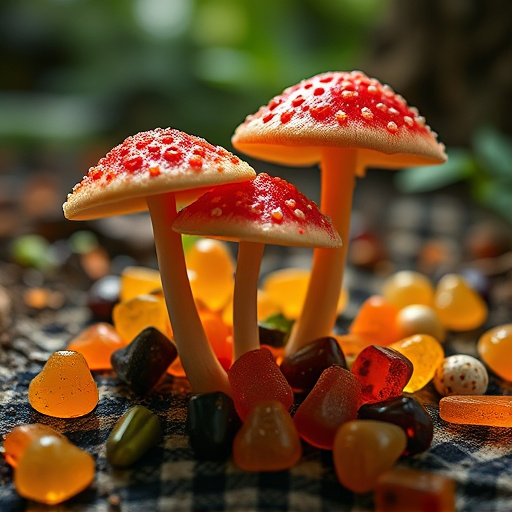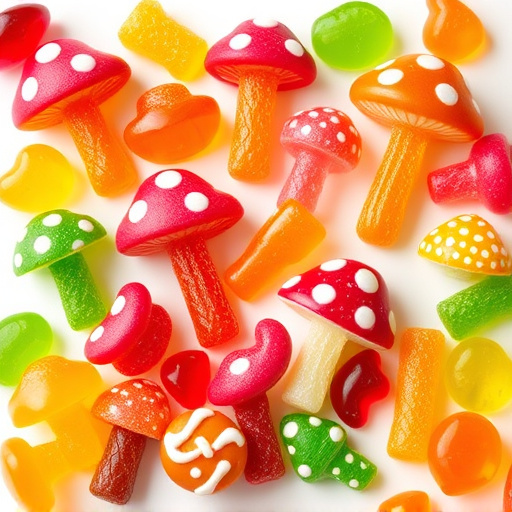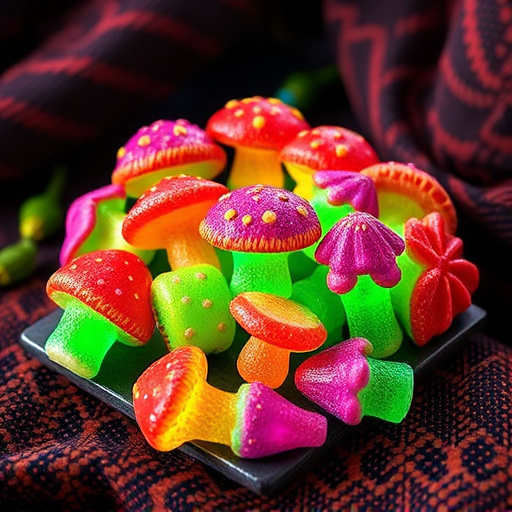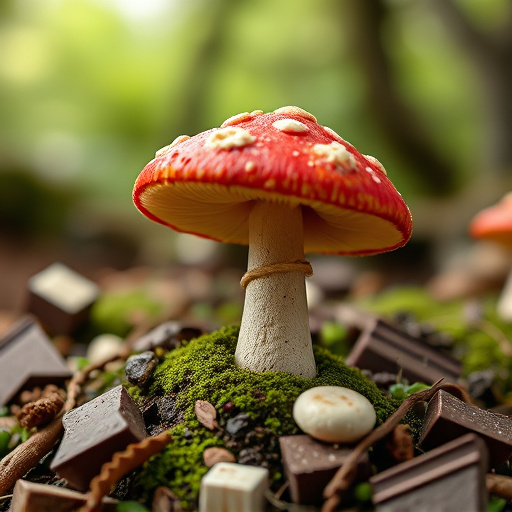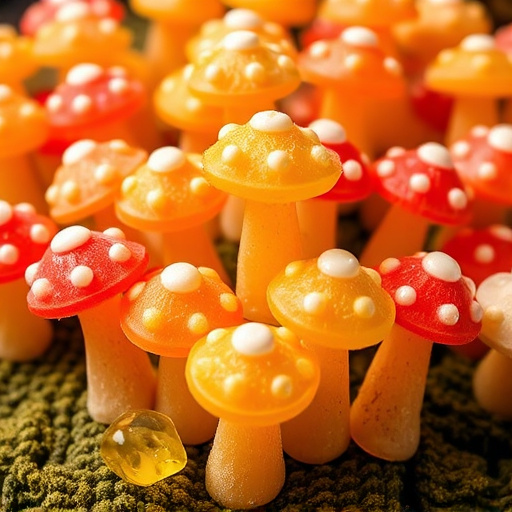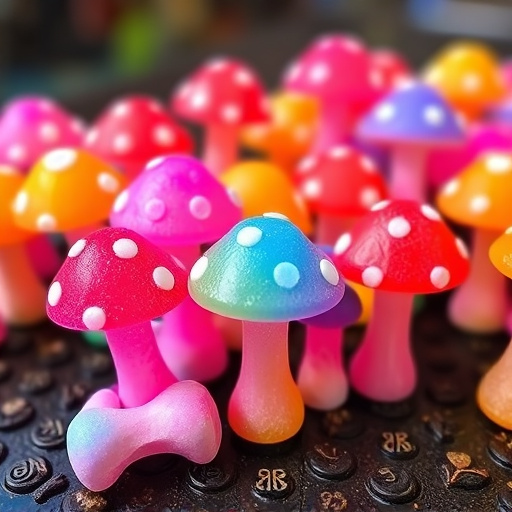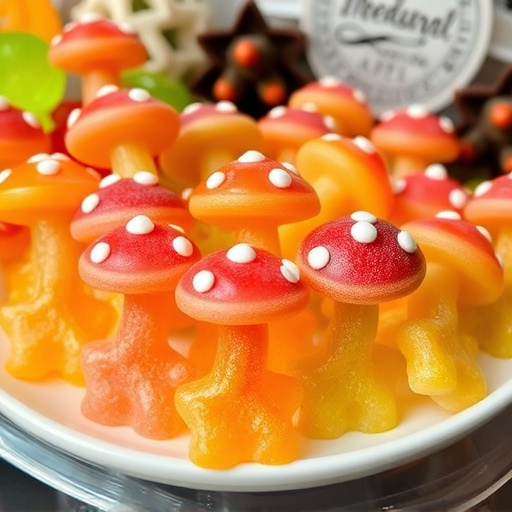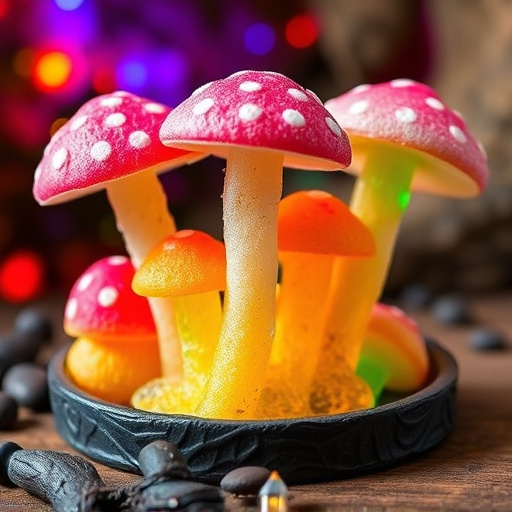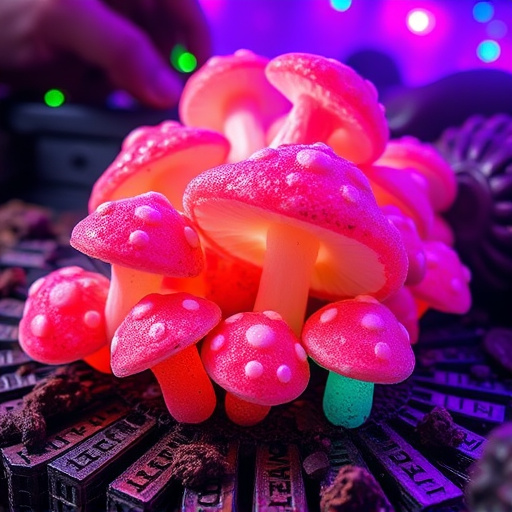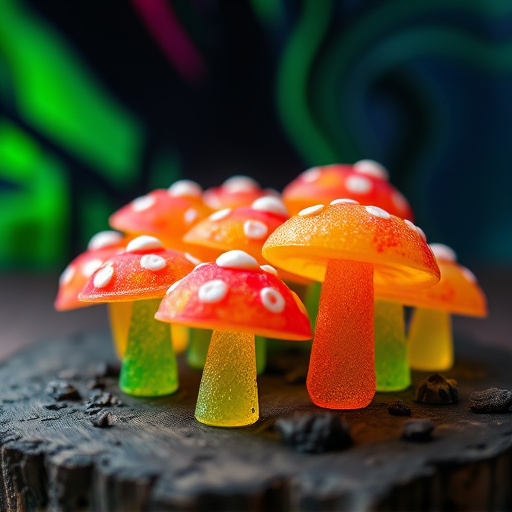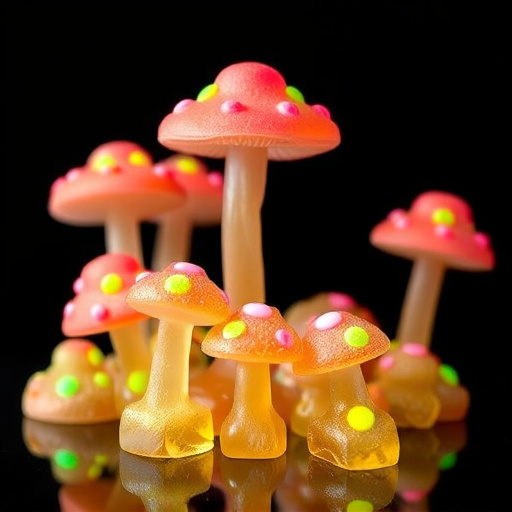Magic mushroom gummies, modern psilocybin-based treats, are gaining attention for their potential anxiety relief benefits. Psilocybin interacts with brain serotonin receptors, enhancing neural connectivity and promoting neuroplasticity – the brain's ability to form new connections. This process has shown promise in treating anxiety disorders by improving mood, reducing fear responses, and normalizing excessive brain connections linked to mental health issues. Recent microdosing studies highlight magic mushroom gummies' potential as a novel therapy for anxiety, though further research is needed to fully understand their long-term effects and optimal dosing.
“Unraveling the potential of Magic Mushroom Gummies as a novel approach to anxiety relief, this article delves into the scientific underpinnings and emerging research. The active compounds within these gummies, notably psilocybin, have shown promise in improving neural connectivity, as evidenced by recent studies. While offering an alternative to traditional anxiety treatments, it’s crucial to explore both benefits and safety aspects, including legal considerations. By examining microdosing and professional guidance, readers can navigate this evolving landscape of Magic Mushroom Gummies and their potential role in managing anxiety.”
- The Science Behind Magic Mushroom Gummies
- – Explore the active compounds in magic mushrooms and their effects on the brain
- – Discuss recent studies on microdosing and neural connectivity
The Science Behind Magic Mushroom Gummies
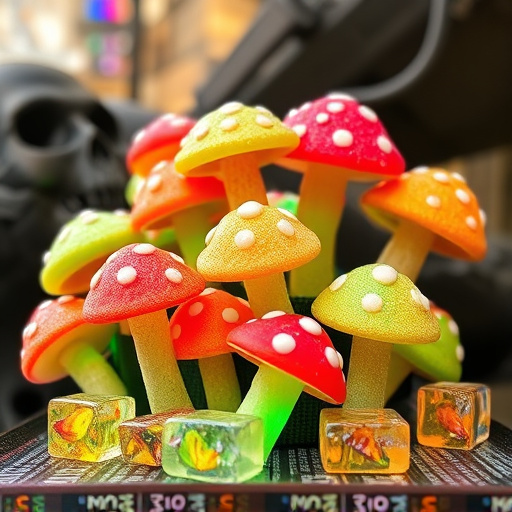
Magic mushroom gummies, a modern twist on traditional psilocybin-containing mushrooms, are gaining attention for their potential in anxiety relief. But what’s behind this trend? The science points to the unique ability of psilocybin, the active compound in magic mushrooms, to interact with neural connectivity in the brain. Research suggests that psilocybin can stimulate the release of neurotransmitters like serotonin, which plays a significant role in regulating mood and reducing anxiety.
The concept of neural connectivity refers to the intricate network of neurons in our brains that communicate with each other via electrical and chemical signals. Magic mushroom gummies exploit this system by enhancing these connections, potentially leading to altered states of consciousness and profound psychological effects. This re-wiring, or neuroplasticity, has shown promise in treating various mental health conditions, including anxiety disorders. Studies indicate that this re-mapping of neural pathways can promote new perspectives and insights, offering a novel approach to managing chronic anxiety symptoms.
– Explore the active compounds in magic mushrooms and their effects on the brain
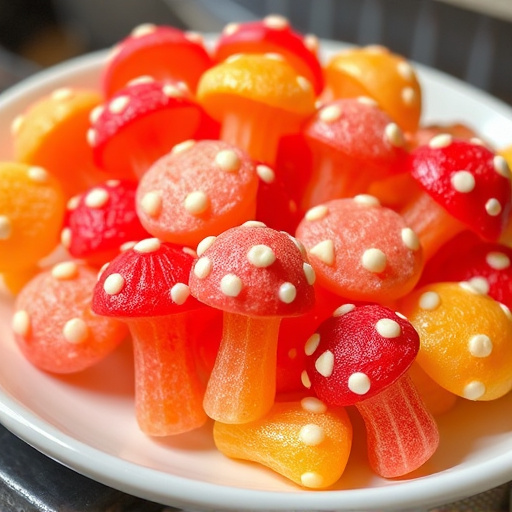
Magic mushrooms, scientifically known as Psilocybin mushrooms, contain powerful active compounds, notably psilocin and psilocybin. These compounds act on specific serotonin receptors in the brain, leading to altered consciousness and a range of neurological effects. Research has shown that psilocin can interact with neural networks, enhancing connectivity between different brain regions. This interaction might be responsible for the therapeutic potential seen in treating anxiety and depression.
The effect on neural connectivity suggests that magic mushroom gummies, when consumed, could facilitate communication between areas of the brain typically operating in isolation. This enhanced connectivity may contribute to a feeling of euphoria, increased creativity, and a deeper understanding of one’s thoughts and emotions, all of which can be beneficial for managing anxiety.
– Discuss recent studies on microdosing and neural connectivity
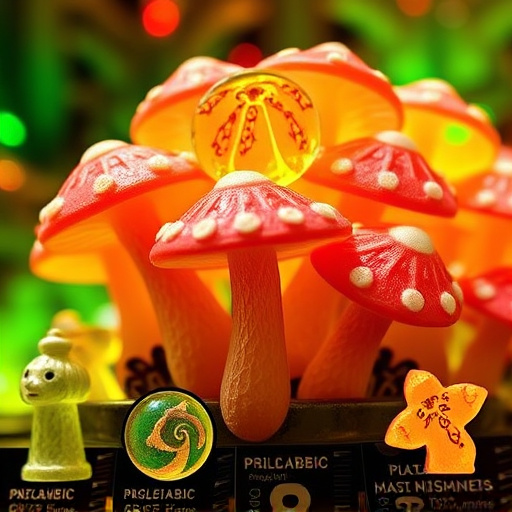
Recent studies have shed light on the potential benefits of microdosing magic mushroom gummies for anxiety relief, exploring their impact on neural connectivity. Research suggests that psilocybin, the active compound in magic mushrooms, can enhance and normalize brain function, leading to improved emotional regulation. When consumed in tiny, controlled doses (microdosing), psilocybin has been found to increase activity in areas of the brain associated with mood, fear, and anxiety, while reducing excessive connectivity in regions linked to mental health disorders.
These findings indicate that magic mushroom gummies, when dosed precisely, could offer a novel approach to managing anxiety. By modulating neural connections, microdosing may help individuals regain a sense of balance and perspective, potentially reducing symptoms associated with anxiety disorders. However, further research is needed to fully understand the long-term effects and optimal dosing protocols for therapeutic use.
While the concept of using Magic Mushroom Gummies for anxiety relief is intriguing, it’s essential to approach this topic with caution. While studies point towards the potential benefits of microdosing magic mushrooms in improving neural connectivity, further research is needed to fully understand their efficacy and safety in gummy form. Until then, it’s crucial to treat these products as experimental and consult healthcare professionals for personalized guidance on managing anxiety.
